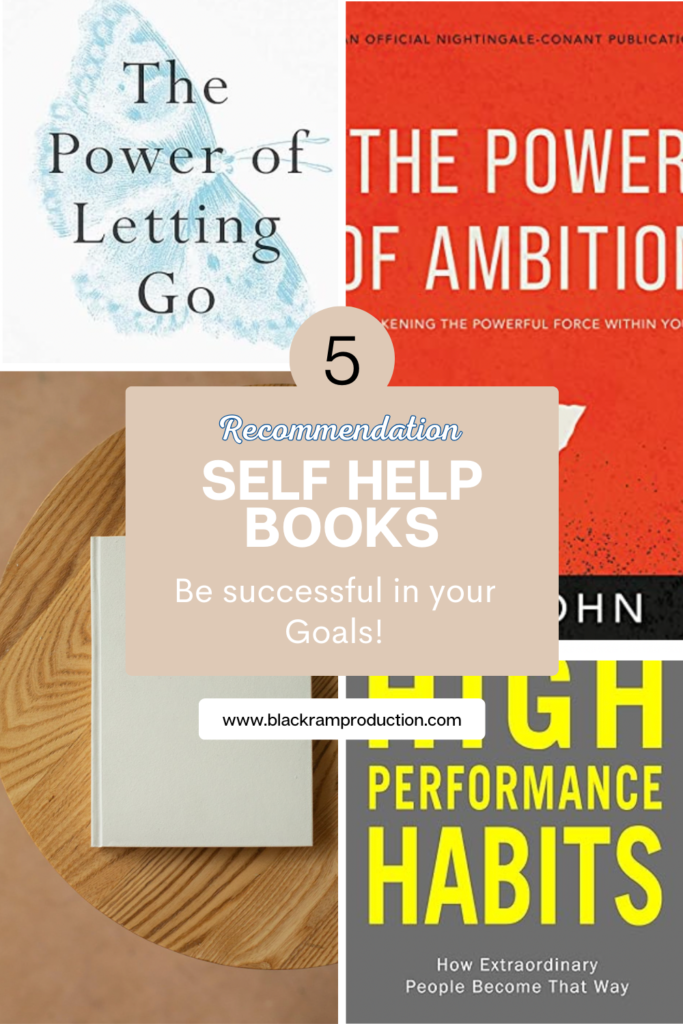
“I would like to disclose that this content contains affiliate links to Amazon, and if you make a purchase through these links, I may earn a commission. I appreciate your help.”
In a world bustling with information, self-help books stand out as beacons of guidance, offering you a compass for personal development and growth. The shelves of bookstores and digital libraries are adorned with titles promising everything from increased productivity to inner peace.
Engaging with self-help books provides many benefits for personal development and overall well-being. These books can significantly increase self-awareness by delving into introspective exercises and reflections, offering you a deeper understanding of their values, beliefs, and behaviors. Practical advice and actionable strategies in self-help literature serve as invaluable roadmaps for overcoming challenges, developing positive habits, and achieving personal goals. Additionally, these books often focus on emotional intelligence, helping readers recognize, understand, and manage their emotions for improved relationships and overall well-being. Success stories and motivational narratives inspire and motivate, instilling a sense of hope and determination. Stress management techniques and mindfulness practices reduce stress levels and enhance mental health. Self-help literature encourages readers to consider alternative perspectives, fostering broader, more open-minded worldviews. Addressing the importance of goal setting and positive habit cultivation, these books empower individuals to take control of their lives, promoting continuous learning and personal growth. While the effectiveness of self-help books varies, the impact can be profound for those who find the right fit, contributing to a transformative journey of self-discovery and empowerment.
Here are a few recommendations:
The 7 Habits of Highly Effective People by Stephen R. Covey
It is a timeless classic that resonates with readers seeking profound insights into personal and professional development. First published in 1989, Covey’s principles have endured the test of time, solidifying this book as a cornerstone in the self-help genre.
The seven habits are at the core of Covey’s philosophy, each serving as a guide to achieving effectiveness in various aspects of life. The book is masterfully structured, with Covey taking readers on a journey from dependence to independence and interdependence. The habits are presented logically, creating a roadmap for personal transformation.
Covey’s writing is both articulate and persuasive, as he draws on many anecdotes, case studies, and wisdom from various cultures to illustrate the principles he espouses. The first three habits focus on achieving independence by mastering personal effectiveness, while the next three delve into interdependence, emphasizing the importance of collaboration and effective communication. The final habit, “Sharpen the Saw,” underscores the significance of continuous improvement and self-renewal.
Master Your Emotions by Thibaut Meurisse
“Master Your Emotions” is a compelling exploration into the intricate world of emotional intelligence, offering readers a roadmap to understanding and harnessing the power of their feelings. Authored with clarity and insight, this book provides practical strategies for achieving emotional mastery, enriching personal relationships, and navigating life’s challenges with resilience.
The author, drawing from a blend of scientific research and personal anecdotes, creates an informative and engaging narrative. The book opens with a convincing argument for the significance of emotional intelligence in personal and professional success. The author contends that understanding and managing one’s emotions is critical to achieving a balanced and fulfilling life.
A notable strength of the book lies in its accessible language and relatable examples. The author avoids jargon, making complex psychological concepts understandable to readers regardless of background. Through real-life stories and scenarios, readers can easily connect with the material, seeing reflections of their own emotional experiences.
The Power of Letting Go by John Purkiss
“The Power of Letting Go” is a transformative guide that gracefully navigates the delicate art of releasing the burdens that hinder personal growth and happiness. Authored with compassion and practicality, this book provides readers with a roadmap to shedding the weight of the past and embracing a more liberated, fulfilled future.
The book’s strength lies in its ability to resonate with readers personally. The author skillfully weaves together relatable anecdotes, real-life examples, and psychological insights to create an engaging and enlightening narrative. The book establishes an immediate connection with its audience by tapping into the universal experience of holding onto the past.
The central theme revolves around the idea that letting go is not a sign of weakness but a demonstration of strength and resilience. The author introduces practical strategies for identifying and releasing emotional baggage, whether grudges, regrets, or self-limiting beliefs. The emphasis on self-compassion is particularly refreshing, encouraging readers to be gentle with themselves as they embark on letting go.
The Power of Ambition by Jim Rohn
“The Power of Ambition” is a motivational masterpiece that delves deep into the transformative force of ambition and serves as a compelling guide for unlocking one’s full potential. Authored with a combination of passion and practicality, this book inspires readers to harness the dynamic energy of ambition to drive personal growth and achieve extraordinary success.
The author adeptly weaves together personal anecdotes, case studies, and psychological insights to create a narrative that is both relatable and empowering. From the outset, the book makes a compelling case for ambition as a positive and catalyzing force, dispelling common misconceptions and encouraging readers to embrace their aspirations enthusiastically.
One of the notable strengths of the book is its structured approach to ambition. The author breaks down the concept into manageable components, providing readers with a roadmap for effectively cultivating and directing their ambition. Whether exploring the importance of setting ambitious goals, overcoming obstacles, or maintaining resilience in the face of challenges, each chapter contributes to a comprehensive understanding of the multifaceted nature of ambition.
High-Performance Habits by Brendon Burchard
In “High-Performance Habits,” Brendon Burchard presents a roadmap for achieving extraordinary success by uncovering and cultivating high-performance habits. Drawing upon years of research and personal experience, Burchard offers readers a comprehensive guide that transcends the realm of self-help and deepens into the psychology of peak performance.
The book centers around six essential habits Burchard identifies as the foundation of high performance: clarity, energy, necessity, productivity, influence, and courage. Each habit is thoroughly explored, backed by real-world examples and practical strategies, making it accessible to readers at any stage of their personal or professional journey.
One of the standout features of this book is its blend of empirical research and relatable storytelling. Burchard not only shares insights from his extensive studies on high performers but also draws on his own life experiences, creating an instructive and inspirational narrative. This combination of evidence-based advice and personal anecdotes fosters a connection between the author and the reader, making the concepts presented more tangible and actionable.
This article was written by Black Ram Production
www.blackramproduction.com
